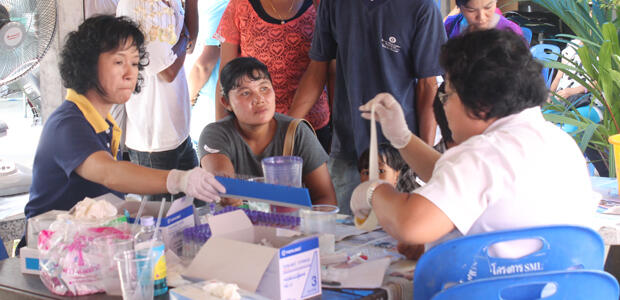Call for papers
UNU-WIDER Symposium on the political economy of social protection systems
Background
United Nations University World Institute for Development Economics Research (UNU-WIDER) has started a new project ‘The Economics and Politics of Taxation and Social Protection’ that aims to shed new light on the system-wide impacts of social protection and tax systems in developing countries. It involves research work that provides analytical tools for policy-makers and researchers alike to understand the current scope of tax-benefit systems and to be able to simulate impacts of policy changes. It also offers new evidence on the impacts of tax systems on economic efficiency; in particular, on tax collection efficacy. Political economy aspects are an important part of this research. Such an approach helps understand which features foster successful adoption of social protection reforms.
The relevance of the subject arises from the fact that social protection has emerged as a key policy strategy against poverty and vulnerability in many developing countries. It has evolved diversely in terms of focus and targeting population, coverage, scope, and design features, with some programmes providing income transfers alone, while others combining income transfers with the utilization of social services and assets. The scale and institutionalization of these programmes vary within countries and also markedly across regions, which reflect important financial, social, and political economy considerations.
The rapid growth of social protection systems has also underlined important knowledge gaps in the theoretical and conceptual frameworks, and also in comparative analysis of political structures, norms, and financial considerations that facilitate (or limit) the evolution and sustainability of such systems.
Financing, in particular, remains as a key constraint. Revenue mobilization strategies have been explored in some developing countries to finance social protection. These include reforms on natural resource taxes, royalties, and fees; shifting expenditure from subsidies and tax exemptions to social protection, and redistribution. Efforts to increase the tax capacity by making the tax administration work more efficiently and by broadening the tax base are often essential, although the feasibility of these strategies often depend on political economy considerations.
Objective
The UNU-WIDER Symposium on the Political Economy of Social Protection Systems aims to contribute to filling the existing knowledge gaps and address primarily, but not exclusively, the following questions:
- How can policy generate sustained routes to develop social protection systems in developing countries?
- Why specific types of programmes (e.g. conditional cash transfers, old age pensions, or workfare programmes) are favoured and clustered in particular regions? What are the implications of such regional configurations for global development efforts to tackle poverty, vulnerability, and other forms of wellbeing deprivation?
- What political regimes or conditions have facilitated (or limited) the expansion of social protection in developing countries? How domestic and external actors could promote these conditions? What underlines their political legitimacy?
- How have fiscal institutions evolved over time as economies in developing countries become more advanced and complex and how are these developments linked with parallel changes in the informal sector?
- What are the (dis)incentives of incumbent governments to use natural resource rents, redistribution, or other forms of revenue mobilization to finance social protection? What are the short-term and long-term implications of such decisions?
Comparative analysis of the emergence of social protection in developing countries, as well as theoretical models and conceptual analysis are essential to address these questions. Therefore, papers are invited to contribute to this Symposium covering aspects of the following areas:
- Theoretical political economy models
- Conceptual analysis of systems
- Country case studies of programmes and impacts
- Econometric analyses utilizing cross-country and panel data
- Regional comparative studies
See full call for papers
![]() Call for papers - UNU-WIDER symposium on the political economy of social protection systems
Call for papers - UNU-WIDER symposium on the political economy of social protection systems
![]() QA - Call for papers - UNU-WIDER symposium on the political economy of social protection systems
QA - Call for papers - UNU-WIDER symposium on the political economy of social protection systems
 Join the network
Join the network
